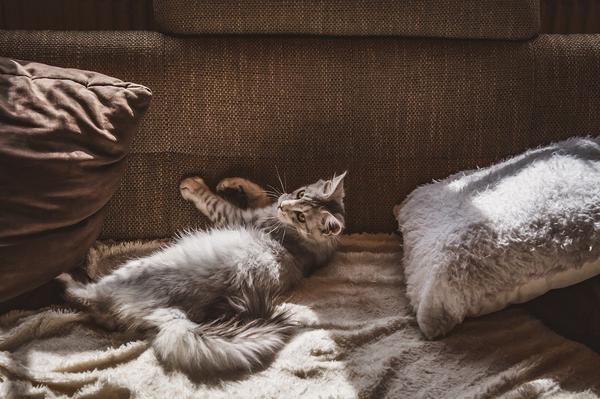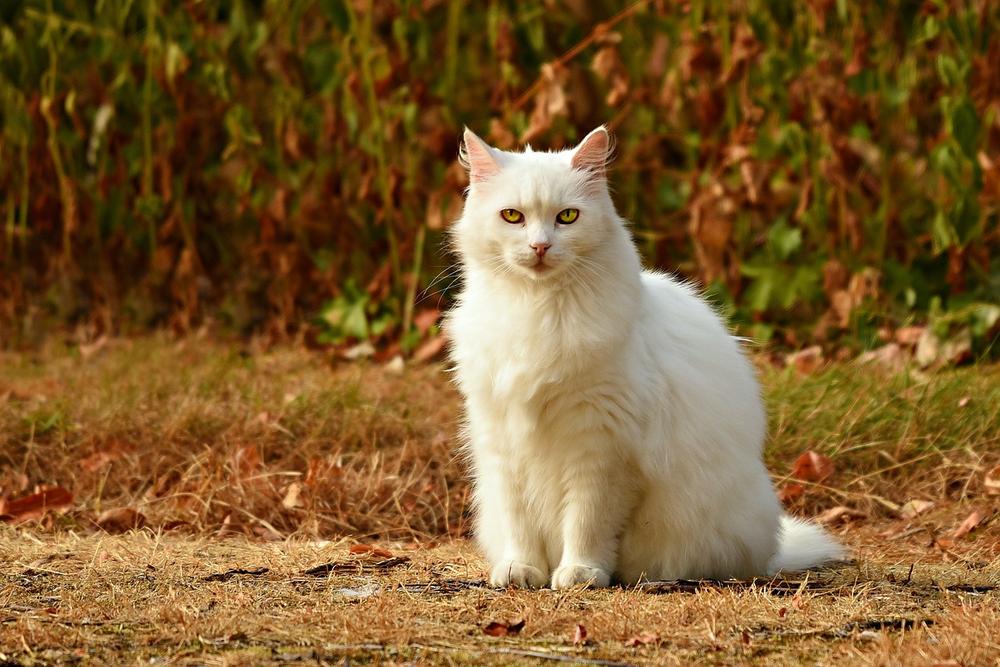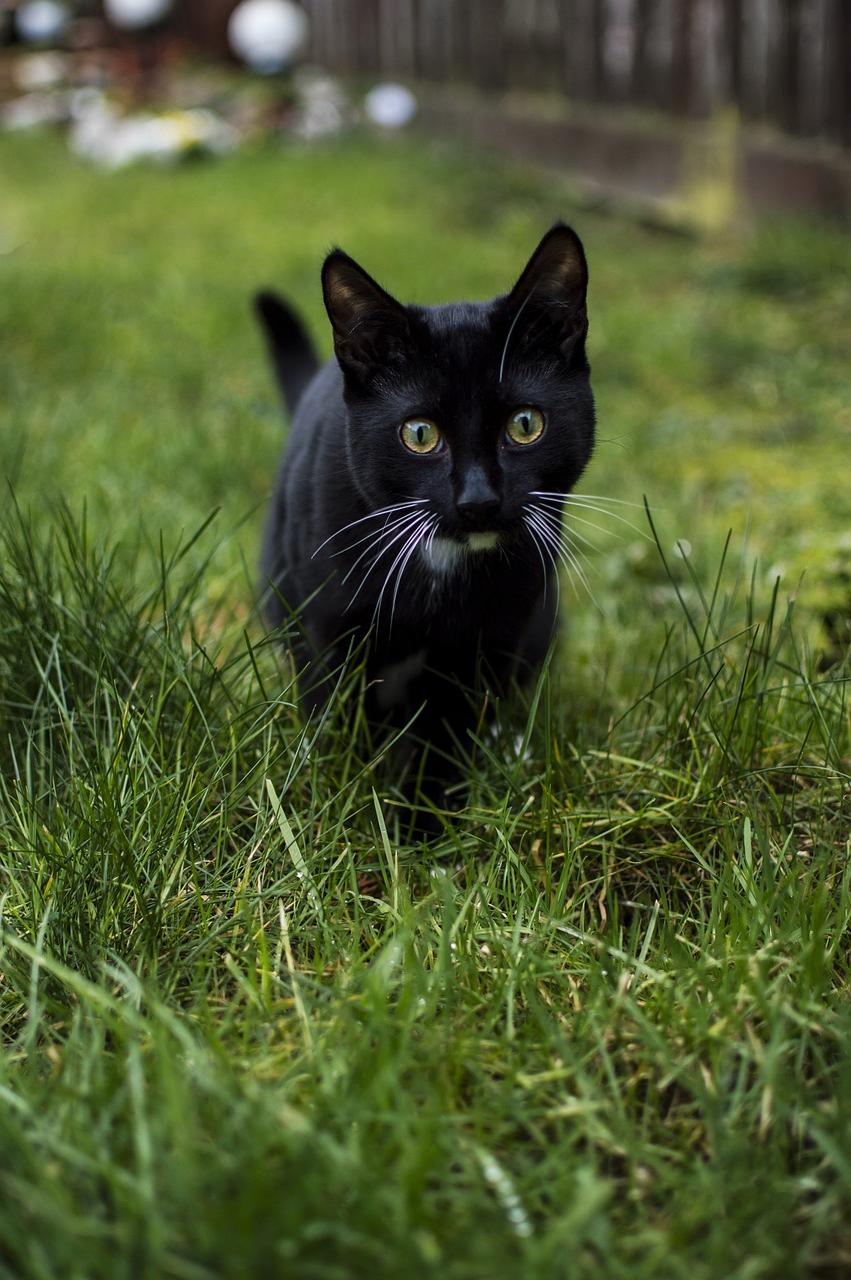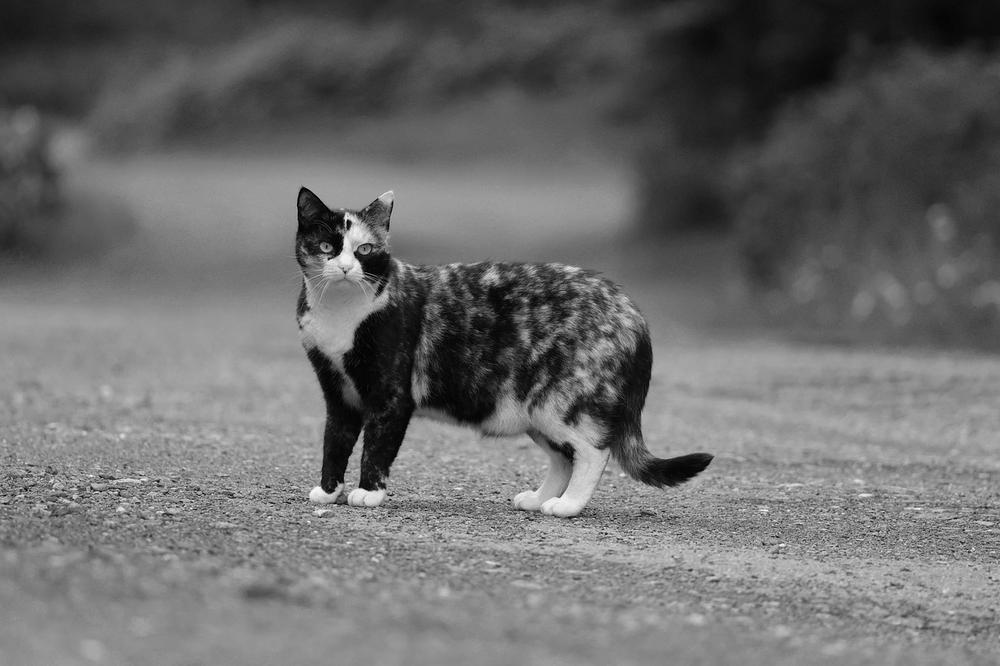Cat Panting in Stress: What Does That Mean?

You'll agree with me when I say:
Worrying about your fur baby's health is the worst feeling 😢.
It's like your heart is being wrung out, twist by twist, as you imagine the worst-case scenarios.
But hey, don't despair just yet.
Let's dive into this topic and find some answers.
Why Do Cats Pant When Stressed?
Cats pant when stressed due to their limited ability to sweat, making panting a natural way for them to regulate body temperature. Stress, anxiety, heat, and strenuous activity are common triggers. However, panting can also indicate underlying health issues like asthma, respiratory infections, obesity, or heart disease.
Cats pant when they're stressed, just like humans.
It's part of their natural coping mechanism.
Panting helps cats regulate body temperature because they can't sweat as much as we can.
So, panting expels excess heat.
There are many reasons why a cat might pant.
Anxiety, stress, heat, strenuous activity, or being trapped in a carrier during travel are common causes.
But panting could also indicate something more serious.
It might be feline asthma, respiratory infection, obesity, pregnancy, heart disease, or cancer.

Scary stuff!
Please keep in mind, panting is less common in cats than dogs.
Certain breeds with different respiratory structures or thick fur coats are more prone to it.
Panting can occur after physical activity, like playing or walking. It helps them catch their breath.
If you're worried about excessive panting, contact your vet for advice.
Better safe than sorry!
But the reasons for a cat panting in stress can go beyond just temperature regulation.
There are various factors that can contribute to this behavior, and you need to understand them in order to effectively address your feline friend's needs.
Let me break them down for you:
Identifying the Cause of Stress in Cats
Changes in routine and environment can stress out cats
You might not realize it, but when you mess with your cat's routine or surroundings, you really stress them out.
Cats are creatures of habit, just like us.
So if you change things up on them, they get all anxious and stuff.
To keep your furry friend chill, try to give them a stable and predictable environment.
Keep their schedule consistent, feed them at the same time every day, and make sure they have plenty of cozy spots where they feel safe.
Different factors can cause panting in felines
If you've noticed your cat panting, there could be a few different reasons for it. One thing that might be causing it is weight issues.
Yup, just like humans, chubby cats have a hard time breathing properly, which makes them pant.
So, in order to help your whiskered buddy out, ensure they're eating good, balanced meals and getting some exercise.
It'll help them shed those extra pounds and breathe easier.
Respiratory diseases can also make your kitty pant.
Stuff like viral infections, nasal growths, tumors, asthma, lung infections, and fluid in the lungs can all mess with a cat's normal breathing.
Poor little guys!
So, during playtime, keep an eye on how your furball breathes and ensure they have a calm, stress-free space to catch their breath.
Identifying what's making your cat breathe heavily is crucial
If your cat is panting up a storm, you need to look around their environment and figure out what's going on.
Sometimes, it's something simple like an infection, but other times it could be more serious, like heartworm or a nerve problem.
Other things that could be behind heavy breathing include injuries, low red blood cell count, or an enlarged belly.
When your cat gets stressed out while exploring, stay cool and try to figure out what's bugging them.
If possible, take them away from the situation until they feel more at ease.
After all, a happy kitty is a stress-free kitty!
And now, let me highlight the importance of seeking veterinary attention promptly if your cat's panting becomes heavier and is accompanied by signs of distress:
When Is Cat Panting an Emergency?
If your cat starts breathing heavily, you need to act fast.
Here's what you should please bear in mind:
- Heavy panting could mean your cat is overheated or having heart problems. It's serious stuff.
- If the panting comes with other signs like laziness, pale gums, or bluish skin, it could be an emergency that can cost their life.
- Use a box or carrier to make sure your feline buddy stays calm and breathes properly during the trip to the vet. Stress-free mode on!
- You gotta let the vet be the detective here. They're the only ones who can figure out if there's an underlying disease causing all this panting.
- Even though cats don't usually pant as much, it’s always good to consult a vet if you're not sure why they're doing it. Better safe than sorry, right?
- Some fancy cat breeds are prone to hidden heart issues, so don’t just brush off the panting as no big deal.
- If your cat also drools like Niagara Falls, feels weak, coughs, wheezes, or speeds up its breathing, haul them to the vet pronto.
- Brace yourself for exams, x-rays, and maybe even some fluid removal to get to the bottom of things.
Your furry friend's health matters...

Don't waste time getting help.
Make sure they feel secure and comfy during the ride to the clinic. 😺
But how can you create a stress-free environment for your panting cat?
Let me share some tips with you...
Creating a Safe and Quiet Space for Your Cat
Creating a safe and comfortable space for your cat is essential. 🐱
Here's how you can do it:
- Designate a specific area within your home where your cat feels secure. This could be a cozy corner in a quiet room, away from loud noises or foot traffic. Place soft bedding and cushions there to make it extra comfy.
- Provide hiding spots for your cat. Cats love to have a place to retreat to when they're feeling stressed or overwhelmed. You can use cat trees, shelves, or even cardboard boxes as hiding spots.
- Set up vertical spaces for your cat to explore and climb. Cats feel safer when they have elevated areas to retreat to. Install cat shelves or invest in a cat tree with different levels.
- Keep the temperature in mind during travel. Overheating can cause panting in cats, so ensure that they are at the right temperature. Use cooling items like vests, ice packs, or pet cooling pads if necessary.
- Plan ahead for car rides. Use synthetic pheromone sprays or calming treats to help keep your cat comfortable. You can also consult with your vet about using medication for car anxiety.
Creating a safe and quiet space for your cat will help them feel more relaxed and content.
And if you're wondering how to address your cat's panting during car rides, I have the perfect solution for you! Discover in my article, Why Do Cats Pant in the Car, how to effectively help your furry friend stay calm and comfortable during trips.
Trust me, you'll find all the answers and advice you need to make your cat's car journey a breeze.
Relaxation Techniques to Calm Panting Cats
To soothe stressed cats who pant, gentle massage and TTouch techniques work wonders.
They promote relaxation and strengthen your bond with your feline friend.

By letting them relax, cool down, or rest, you can alleviate their panting.
Assisting your cat in achieving a state of tranquility, calmness, or coolness will address their panting issue.
You have the power to calmly reassure your cat and help them chill by utilizing the methods we discussed earlier.
Together, you and your furry companion can overcome any hurdle that comes your way.
Panting Cats: Managing Stress for a Calmer Feline
Summary/Takeaway:
- Cat panting is a way for them to regulate body temperature.
- Panting can be a sign of stress and anxiety in cats.
- Possible causes of panting include anxiety, stress, heat, and exercise.
- Panting can indicate underlying health issues such as asthma, respiratory infection, and heart disease.
- Cats with breathing problems may exhibit panting.
- It's important to evaluate the environment and possible causes of panting.
- Veterinary attention should be sought immediately if the panting is heavy or prolonged.
- Certain cat breeds are prone to respiratory illness and heart issues, so panting should not be ignored.
- Cooling measures, calm environments, and proper transportation can help reduce panting.
- Assisting cats in achieving relaxation and coolness can alleviate panting.
And that wraps up today's article.
If you wish to read more of my useful articles, I recommend you check out some of these: Cats Claws Not Retracting, Why Do Cats Rub Their Eyes, My Cat Cant Meow Just Squeaks, Pregnant Cat Vomiting, and Why Is My Cats Nose Cold
Talk soon,
-Sarah Davis